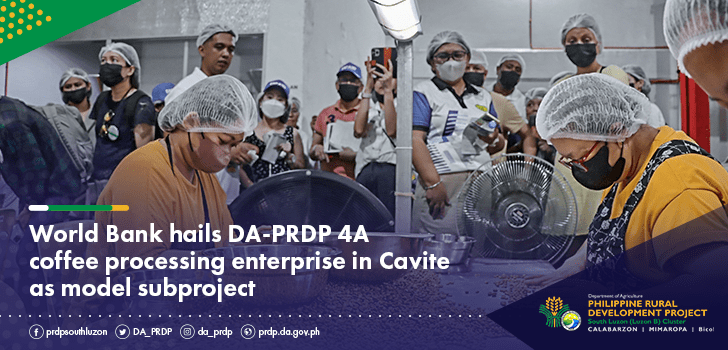
World Bank hails DA-PRDP 4A coffee processing enterprise in Cavite as model subproject
World Bank delegates visited the Cavite Coffee Processing and Trading enterprise subproject funded under the Department of Agriculture – Philippine Rural Development Project (DA-PRDP) in Brgy. Banay-banay, Amadeo, Cavite. The delegates toured the enterprise’s coffee processing facility, sampled products, and discussed its operations and sustainability with the proponent group Café Amadeo Development Cooperative, the DA Regional Field Office Calabarzon, the DA-PRDP, and the local government units of Cavite and Amadeo.
Highlighted in the discussions were the joint efforts of the DA-PRDP, DA-4A, LGU, and the Café Amadeo Development Cooperative. Among them are the enrichment of farmers’ knowledge in producing input supplies, continuous provision of agricultural interventions and technical assistance, policies on land conversion, enterprise diversification, and the establishment of additional coffee production areas in Amadeo. Delegates from the World Bank also shared good practices from their respective countries and potential interventions that could be adopted and replicated.
The Cavite Coffee Processing and Trading enterprise, completed in 2020, is considered as one of the most successful DA-PRDP enterprise subprojects in the country. Through the years, the subproject has been consistently increasing the annual income of coffee farmers, the production volume of blended coffee products, farmer-members, and jobs in the locality. One of the subproject’s major achievements was the establishment of a PhP 5 M-coffee shop building funded by the enterprise’s earnings in the previous years.
World Bank Co-Task Team Leader Maria Theresa Quiñones emphasized that the subproject is a testimony of the determination and trust among the World Bank, the DA, and coffee farmers to sustain local coffee production and to improve the lives of local coffee farmers. She added that the enterprise’s good practices must be replicated in other countries.
In response, DA-PRDP 4A Regional Project Director Engr. Redelliza Gruezo thanked the World Bank for recognizing the enterprise subproject. According to her, the DA-PRDP 4A will continue its strong partnership with the proponent group and the LGU to sustain the subproject and will also continue exploring grounded, modern, and innovative approaches and opportunities in its future endeavors. #
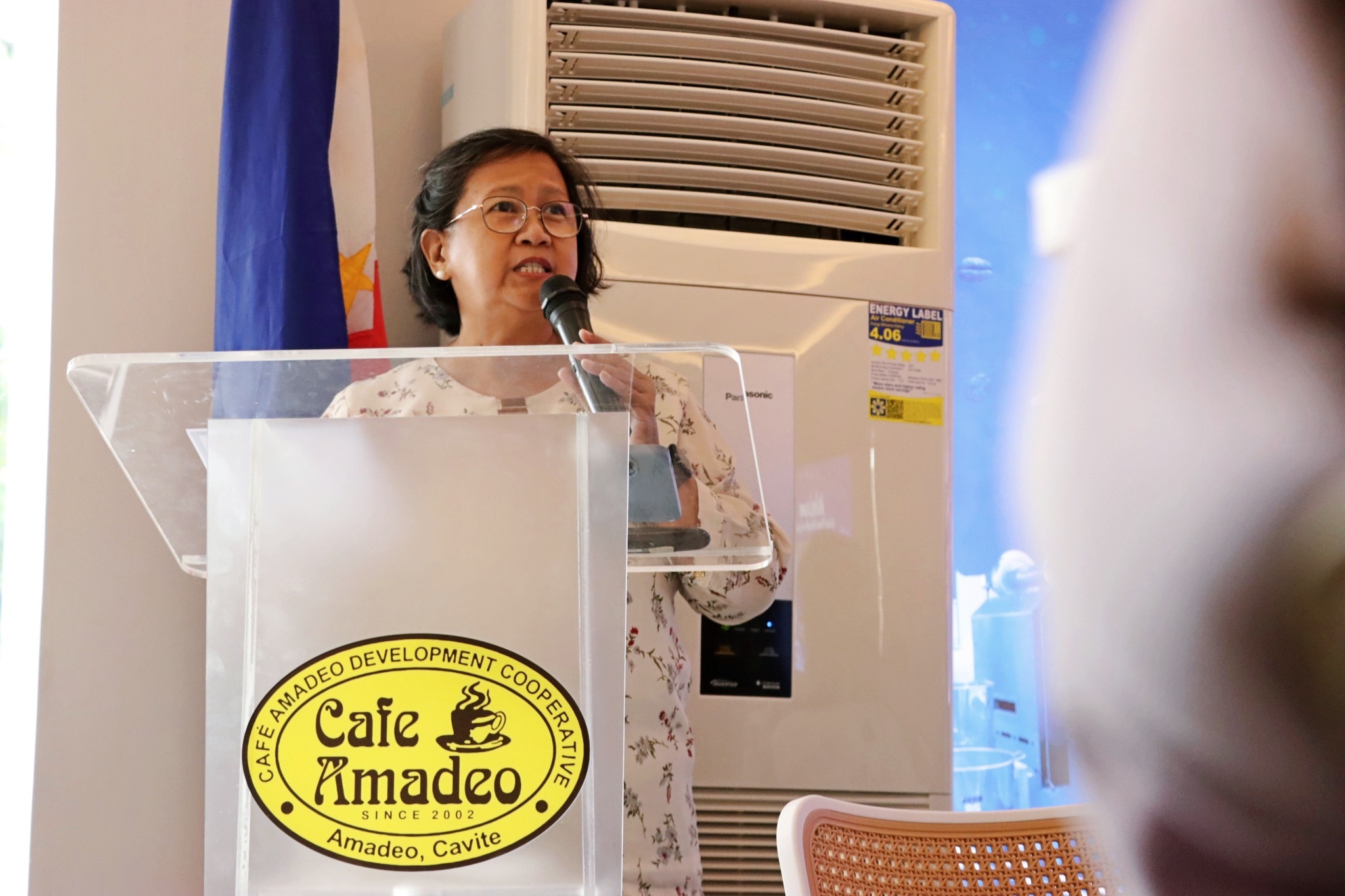
World Bank Co-Task Team Leader Maria Theresa Quiñones encouraged the cooperative to continue innovating and expanding their enterprise as its sustainability would provide hope and motivation for coffee farmers to continue their production. (Photo by Ana Victoria Margallo)
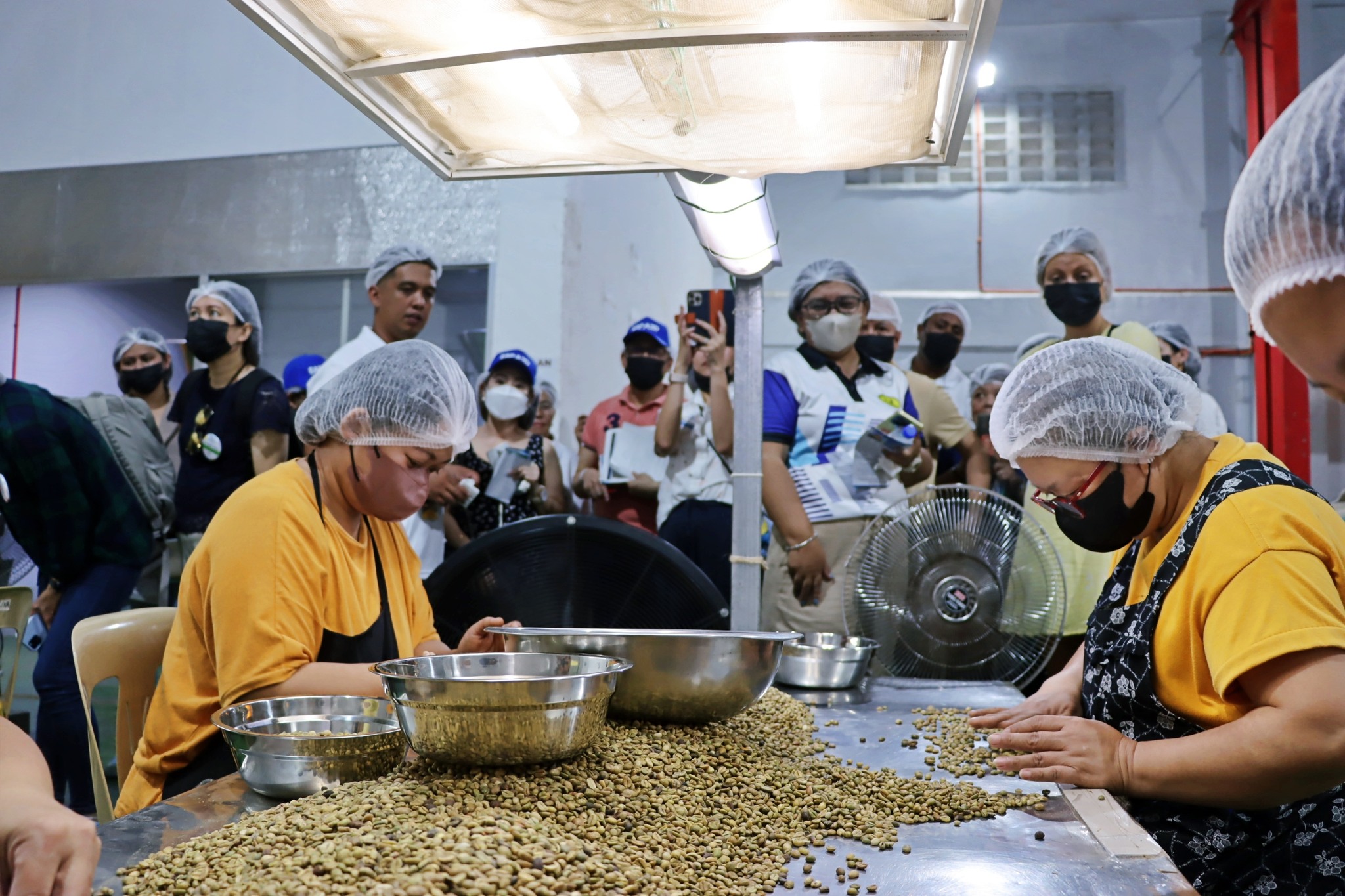
With more equipment and a bigger production capacity, the cooperative hired employees from their locality to process coffee. Majority of their employees in the facility are sorters, mostly women. (Photo by Ana Victoria Margallo)

General Manager Madlansacay shows their 30 kg-roasting machines from the DA-PRDP. These equipment substantially increased the cooperative’s production capacity now that they can roast 60-120 kg of coffee at a time compared to 10 kg back then. (Photo by Myrelle Joy Bejasa)
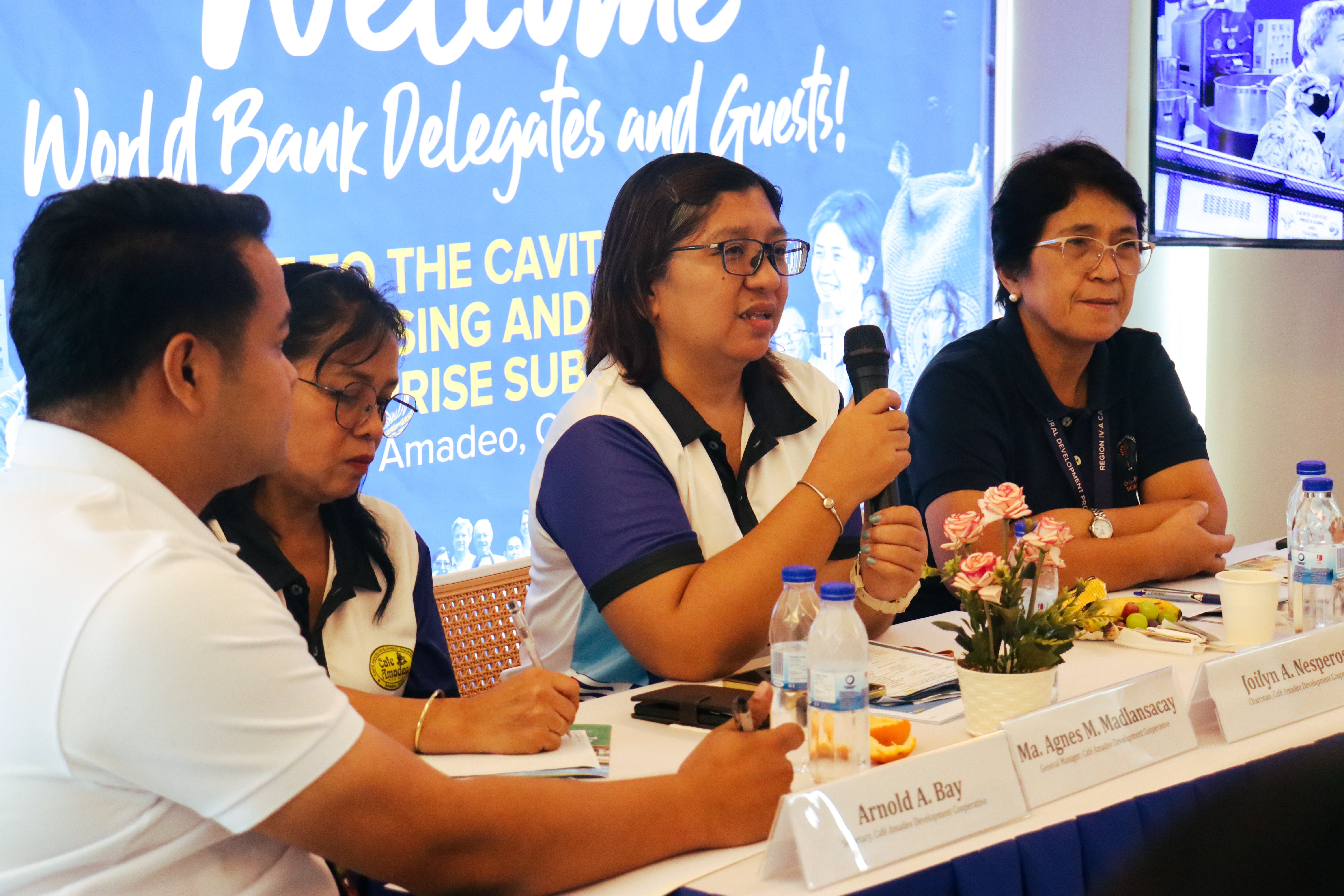
Café Amadeo Development Cooperative Chairman Joilyn Nesperos shares the cooperative’s good practices to the World Bank Delegates. Among them is their innovative practices in marketing by involving their members in various marketing strategies like selling in online platforms such as Lazada and Shopee. (Photo by Myrelle Joy Bejasa)
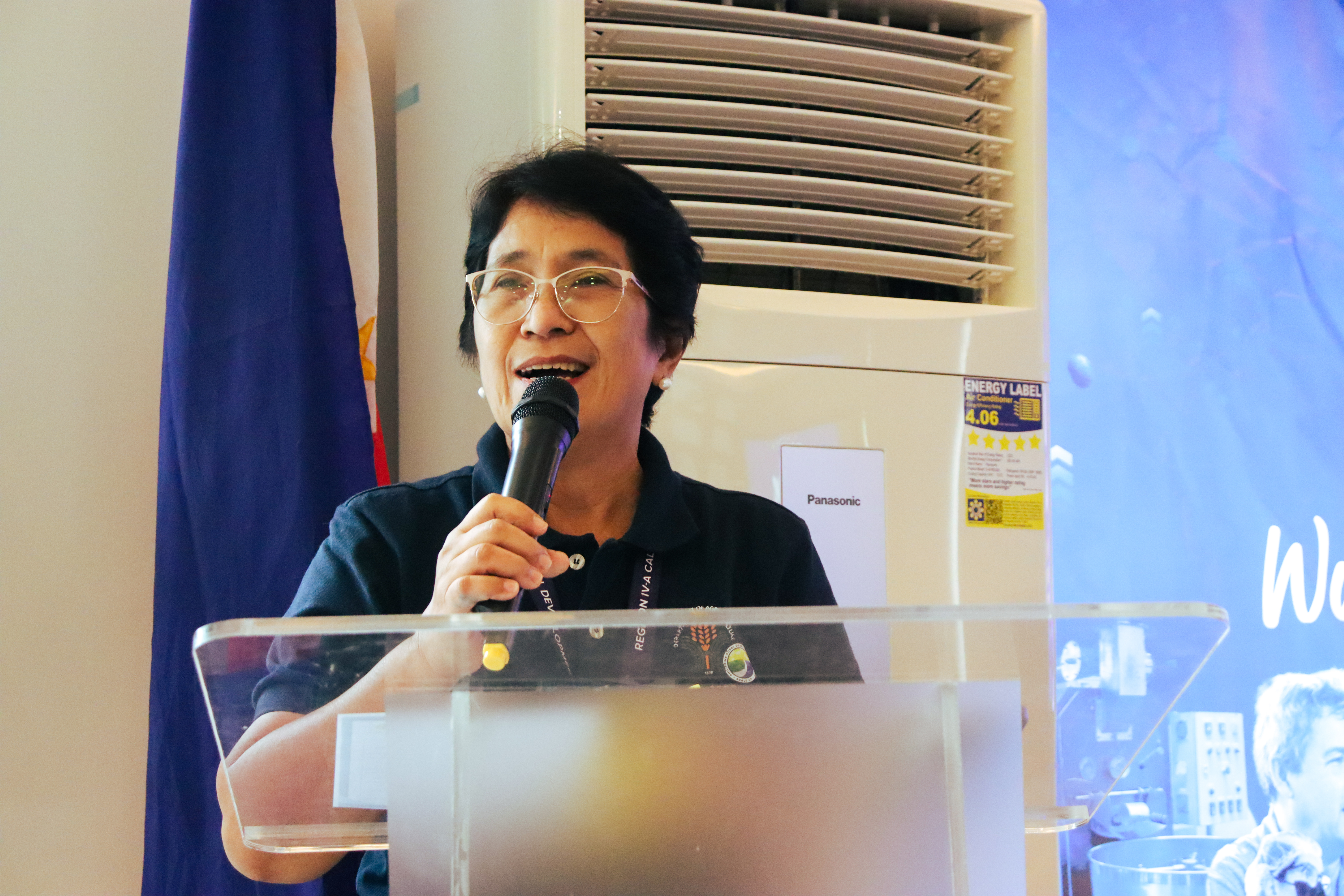
DA-PRDP 4A Project Director Engr. Redelliza Gruezo shared her gratitude to the World Bank and the cooperative for their contributions to the success of the enterprise subproject. According to her, the subproject will serve as an inspiration not just to local farmers and other cooperatives, but also to the DA as it continues to implement more interventions for the agriculture and fisheries sector. (Photo by Myrelle Joy Bejasa)
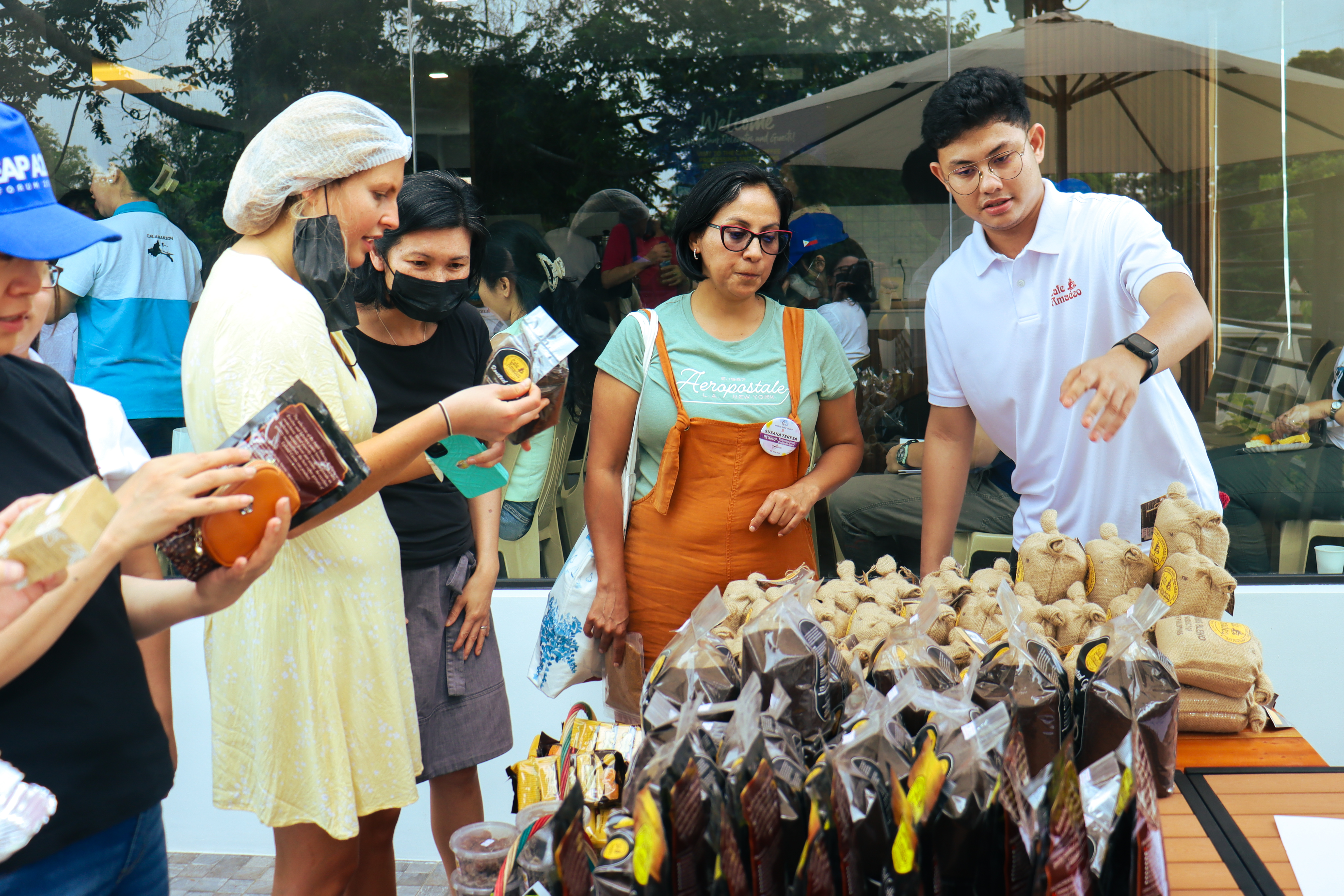
After giving a tour of the facility, the cooperative shows the end- products to the delegates. They particularly showcased their signature Pahimis blend, a mixture of four varieties of coffee: Robusta, Excelsa, Liberica, and Arabica. Right now, the cooperative is exploring a new specialty blend. (Photo by Myrelle Joy Bejasa)
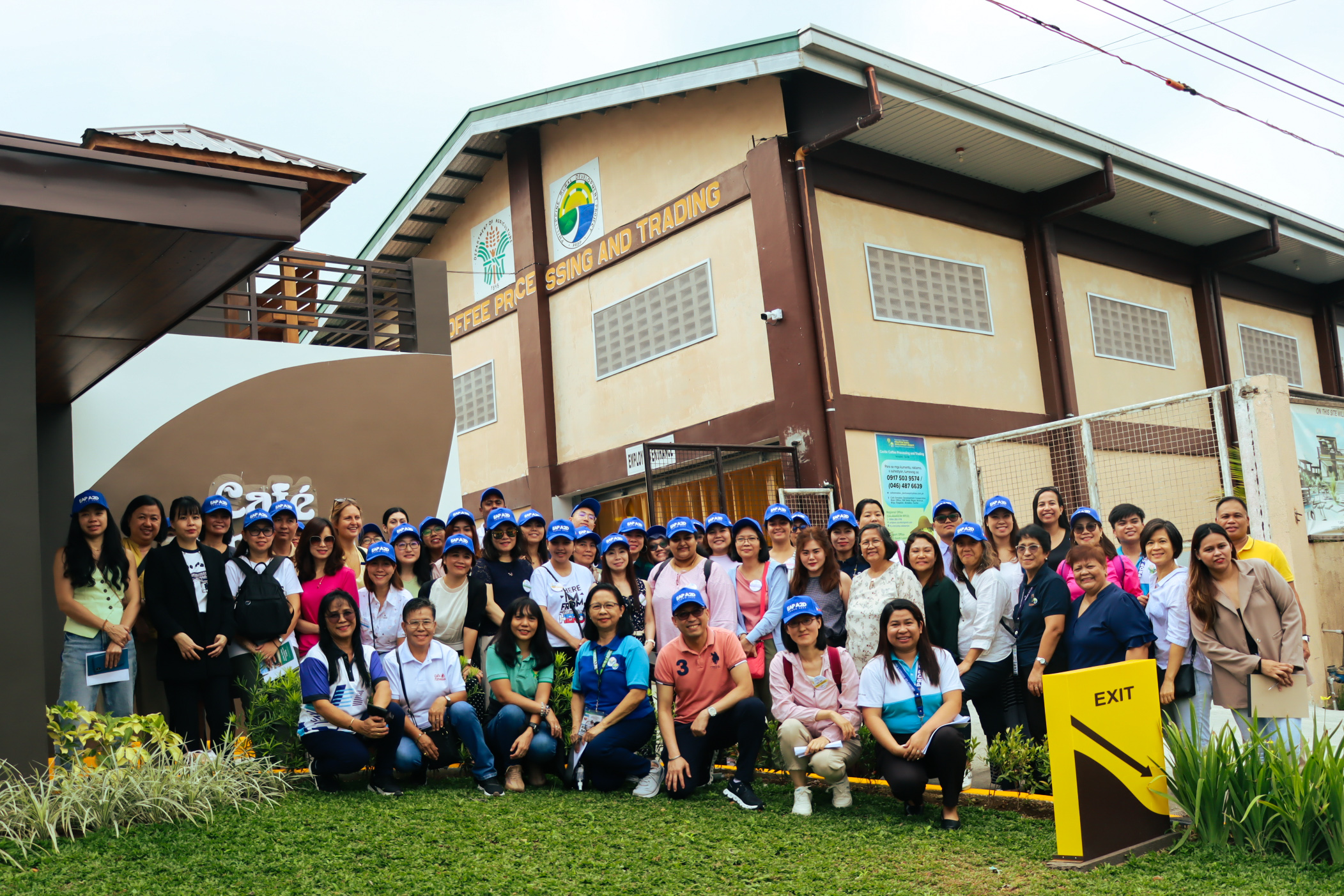
After a few years since the enterprise subproject’s launch, the efforts of the World Bank, the DA, the DA-PRDP, and the cooperative bore fruit as the cooperative successfully constructed a PhP 5M-coffee shop building beside the coffee processing facility. This coffee shop is expected to bring in more sales and income for the cooperative. (Photo by Ana Victoria Margallo)

Café Amadeo Development Cooperative General Manager Agnes Madlansacay shows the quality of their raw materials to the World Bank Delegates. According to her, the cooperative is able to preserve the quality of their beans for longer because of the bigger and safer storage space provided by the DA-PRDP-funded offee processing facility. (Photo by Myrelle Joy Bejasa)
